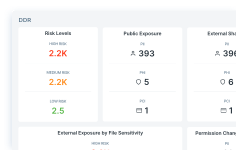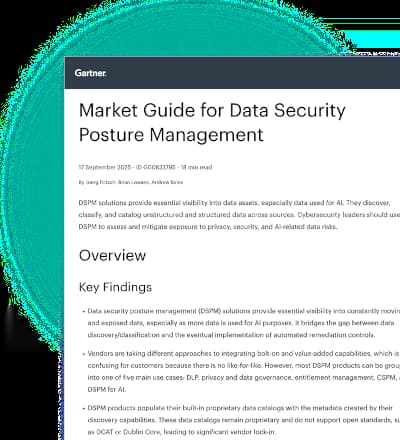X-Labs
Get insight, analysis & news straight to your inbox

The 5 Hidden SaaS Data Risks Every CISO Must Address

Neeraj Nayak
December 17, 2025

Structured Data Classification: Top 5 Tools and Best Practices

Lionel Menchaca
December 16, 2025

Go Slow to Go Fast: The New AI Playbook for IT Infrastructure

Jonathan Knepher
December 15, 2025

10 Best DSPM Tools Compared: Comprehensive Guide for CISOs

Lionel Menchaca
December 14, 2025

Selecting the Right DSPM Solution for Cloud Security: A Comprehensive Guide

Tim Herr
December 13, 2025

Tracking Global Data Protection Laws in 2026

Kieran Laffan
December 12, 2025

DSPM Use Cases for 2025: Compliance, AI and Cloud Security

Lionel Menchaca
December 11, 2025

Gartner Recommends Blocking AI Browsers – Here’s Why

Bryan Arnott
December 10, 2025

Why California’s New Browser Law Impacts Your Data Governance

Tim Herr
December 9, 2025

Agentic AI: Securing a New Generation of Digital Actors

Nick Savvides
December 8, 2025

Comprehensive Guide to Data Security Posture Management (DSPM)

Lionel Menchaca
December 7, 2025













